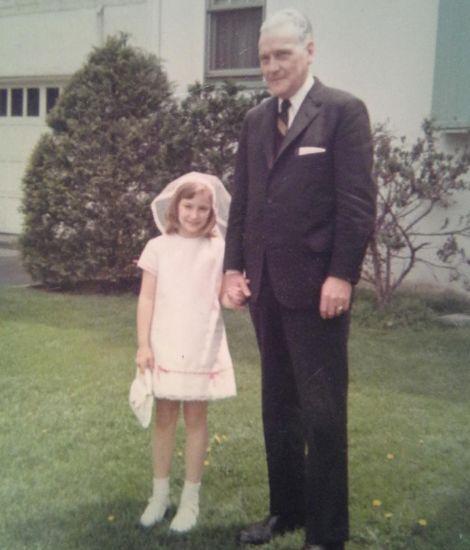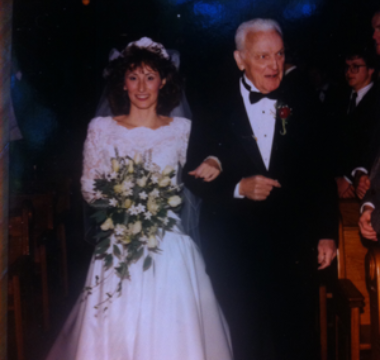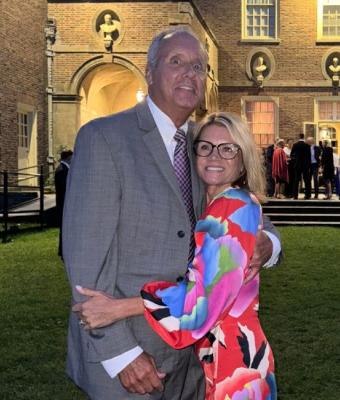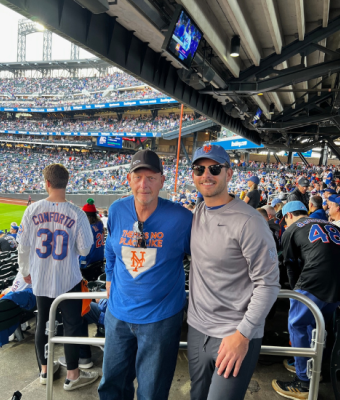My PD Story

Mary Ann Conway
Unfortunately, Parkinson’s disease (PD) has been a part of my life story for quite some time. In 1985, I gave up on my dream to go to Nashville to work with The Nashville Network so I could move back to New Jersey to care for my parents. They had both been diagnosed with Parkinson’s. For the next 10 years, I was their primary caregiver.
My parents were vibrant, active people before Parkinson’s. My father, John, was a successful production manager of the control panels on the Gemini, Mercury and Apollo space missions, which is why I was deeply saddened the day I walked into the kitchen — many years after he retired — and he introduced me to his co-worker, but all I saw was an empty chair. My mother, Peggy, was a great basketball player and a runway model in her youth. She worked hard as a secretary and loved to go to Long Beach Island, NJ. She also eventually suffered from delusions. It still saddens me that she was never really able to enjoy the limited time she had with her granddaughter, my first-born, due to the fact that she couldn’t recognize her.
Despite being prepared to help my parents cope with motor symptoms typical of Parkinson’s, I was surprised when they both began to experience non-motor symptoms including hallucinations (seeing things that aren’t there) and delusions (false beliefs). At the time, I didn’t know that PD associated psychosis affects more than half of people with Parkinson’s over the course of their disease.
In 2014, Parkinson’s reared its ugly head again, when my sister was diagnosed. Where once she was full of life and quick-witted, today her personality is overshadowed by seeing things that aren’t really there. Frequently, she will see a snake on her hand, men in the trees outside, dogs at the door or even barbershop quartets in the wall.

Caring for people who see or believe things that are not real can be emotionally draining. My best coping mechanism is to sing. In 2015, I wrote and performed a song at an event hosted by Light of Day, a non-profit dedicated to Parkinson’s. Performing was cathartic.
Soon after, I was told about a clinical trial for a medication, Pimavanserin (brand name: Nuplazid), that specifically treats hallucinations and delusions associated with PD psychosis. Although my sister did not have access to this medication in its trail phase, I jumped on the chance to share my story as a caregiver with the expert panel that deliberated the recommendation of the drug’s approval to the US Food and Drug Administration (FDA).
After 30 years of feeling helpless while dealing with PD associated psychosis, I felt empowered to be a force for change. I was overjoyed that my story was heard!
Thankfully, the first treatment for PD associated psychosis was recently approved by the FDA. We’re still uncertain how the medicine will help my sister’s current PD symptoms, but at least there is hope.
I share my story to raise awareness about the prevalence of PD psychosis and the impact it has on people with Parkinson’s, caregivers and their families. My advice to others is to learn more about non-motor symptoms and to talk to your loved one’s doctor. Reach out for support and know that you’re not alone.
Read Psychosis, A Mind Guide to Parkinson’s disease to learn more
Related Materials
Pain in Parkinson's Disease
Nutrition and PD
Medications for Non-motor Symptoms
More Stories
from the Parkinson's community


